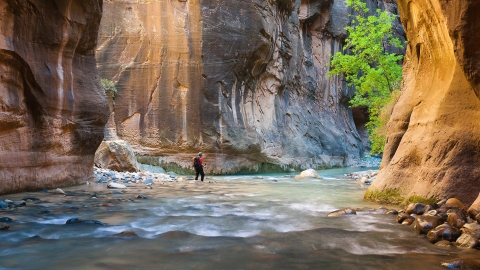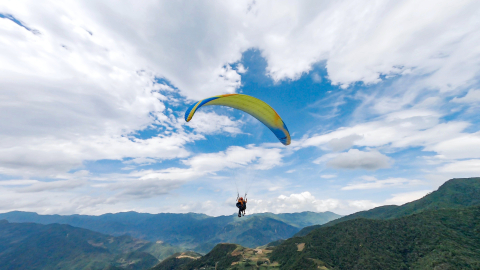The idea began to take shape amidst the hustle and bustle.
Beatrice Moricci is an Italian wedding photographer who is used to traveling. She says, "My clients are mostly from abroad and love having weddings in the beautiful Tuscan countryside, so I travel frequently, but I'm always rushed by the wedding schedules. After each trip, I think I need to slow down a bit."
But in March 2020, as the pandemic hit, Moricci, like many others, was thrust into a less hectic pace due to three months of social distancing. With weddings largely canceled or postponed, for the first time in a decade, she found herself with a summer of freedom, unconstrained by schedules and work. She thought what she could do then: go hiking and explore.
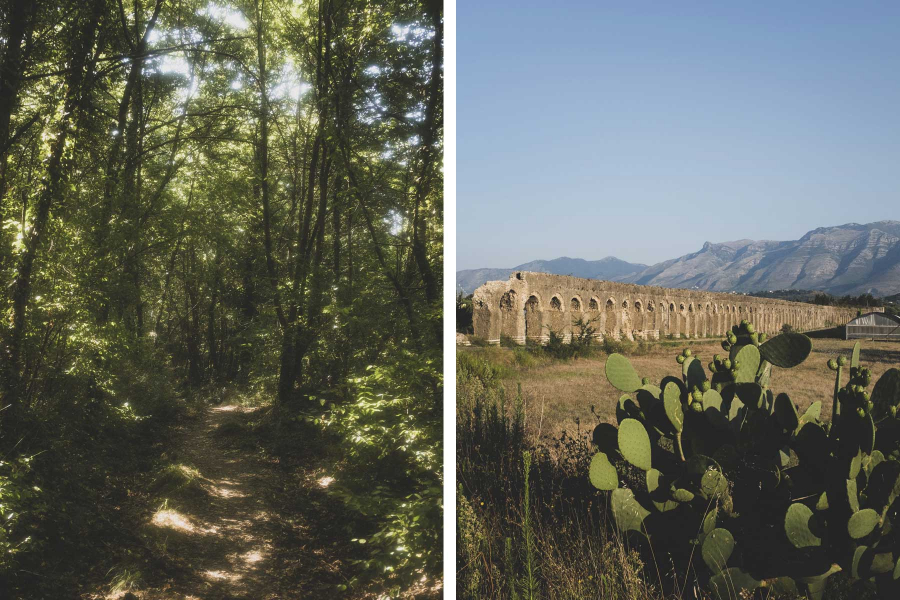
Moricci decided to walk the Via Francigena for two months starting in late June, when lockdown restrictions had eased and locals were allowed to move from one area to another. "I started thinking about walking – the slowest way to travel," she said. "The pandemic forced us to stay indoors, to socialize, to be suspicious of each other… I wanted to make things simpler – adventurous, natural, self-reliant by the easiest way to travel: walking."
Starting in northwestern Italy, Moricci walked 1,400 km through Italy's border region, winding through Valle d'Aosta, Piemonte, Lombardy, Emilia Romagna, Tuscany, Lazio, Campania, and finally ending her journey in Santa Maria di Leuca. (She also conquered another 400 km by bicycle).
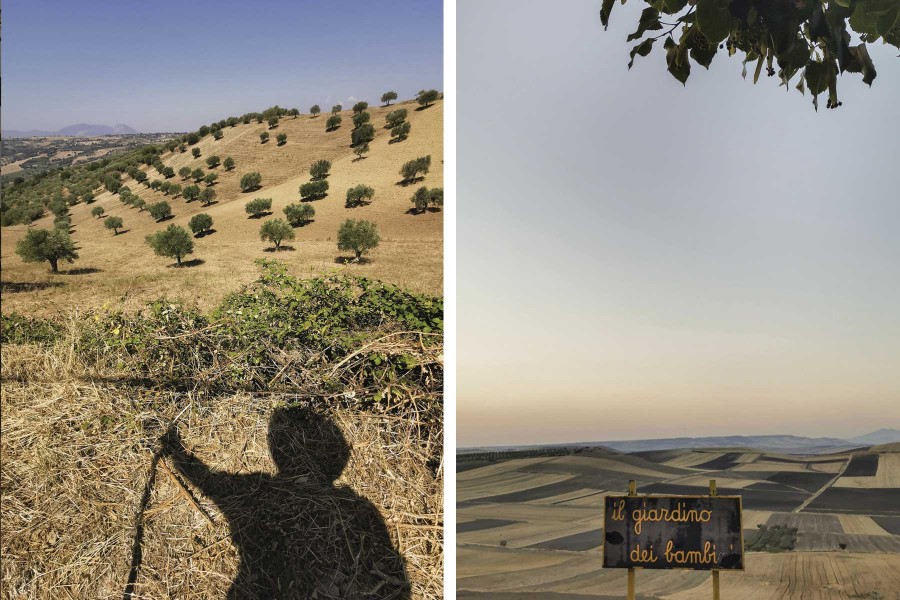
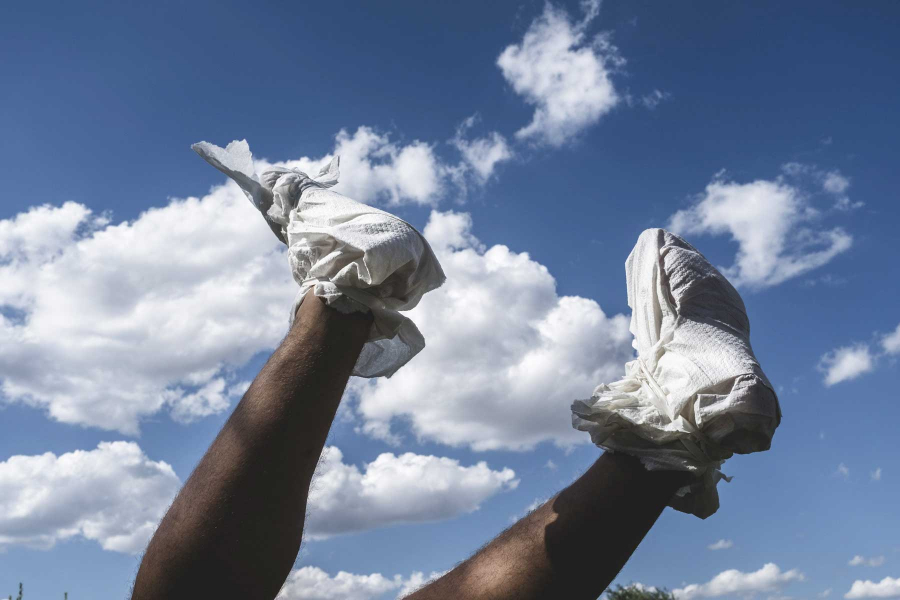
"I've discovered the beauty and importance of slowing down, taking more time to explore the land, people, culture, and architecture. We used to be only used to going from inside to outside – from home to work, from home to the shopping mall – but walking and exploring allows us to have experiences that extend far beyond."
Nature - a priceless gift
Like an artist, Moricci paints a beautiful picture: She depicts in detail the landscape, the scattered mountain passes; the dirt roads, village lanes shaded by cypress trees; cobblestone streets; fields of corn, rice, tomatoes, peaches, and plums; vineyards; centuries-old olive groves; and the coastal roads along the Adriatic overlooking the Albanian mountains.
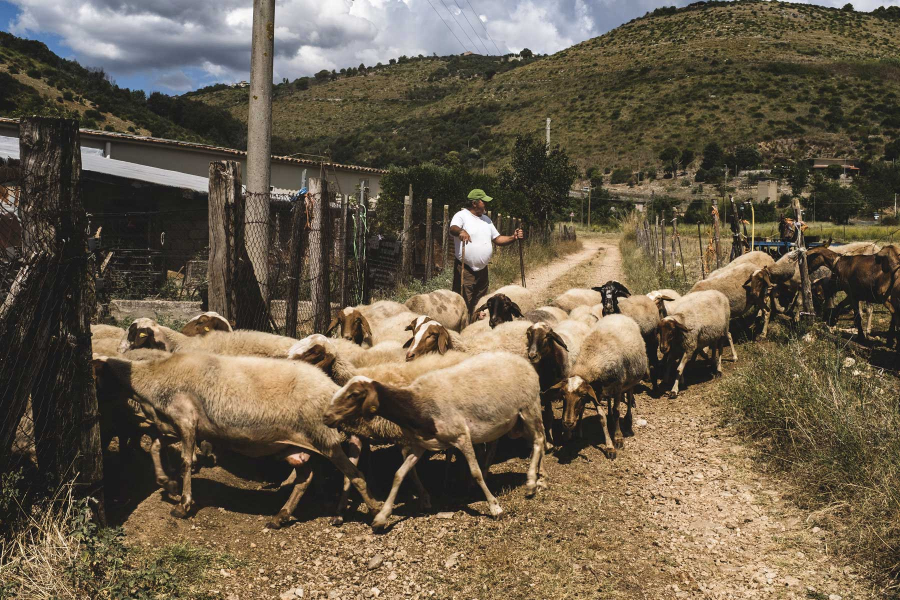
Nature is a priceless gift. "Nature doesn't need us; during this pandemic, it's a prime example of how it regenerates itself. We should be truly grateful to nature. Being able to step into it is a blessing," she shared.
Although this wasn't her first time walking so much, Moricci had previously hiked for two weeks in Tuscany last spring. Moricci doesn't consider herself particularly fit. “I’m not a sports person,” she said, explaining that she had been walking 10 to 15 kilometers a day for a month before setting off. In preparation, Moricci felt both anxious and excited – “uneasy about leaving and impatient to start.” “My parents and some friends discouraged me – they didn’t understand my choice and the nature of the trip, especially at this time.”
But Moricci believed that, throughout her journey, she was not alone.
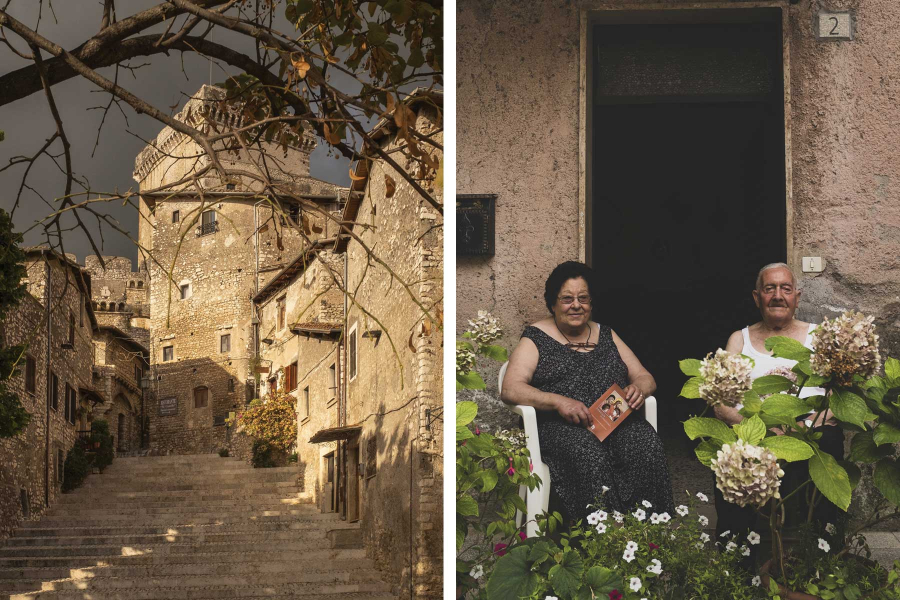
"They called me just to make sure I was okay."
It's true that Moricci met many people on her trip. She said, "Via Francigena isn't a trek through deserts or rocky mountains. The starting point and destination are always in a town, the journey through fields, forests, mountain roads, and village paths. I met many people working in the fields, and locals walking their puppies." Greeting them, Moricci found that everyone was very friendly and enthusiastic about her journey.
She recounted several memorable encounters—one with a man working in the fields of Apulia, curious and moved by Moricci's courage and determination in walking alone; and another with Antonio, an 81-year-old retired tailor. She also met two nuns, Cristina and Rosangela, who for many years had long wished to leave their current lives and live in the mountains. Currently, they live in Eremo di Perloz, making honey, tending their vegetable gardens, and occasionally hosting adventurers like Moricci.
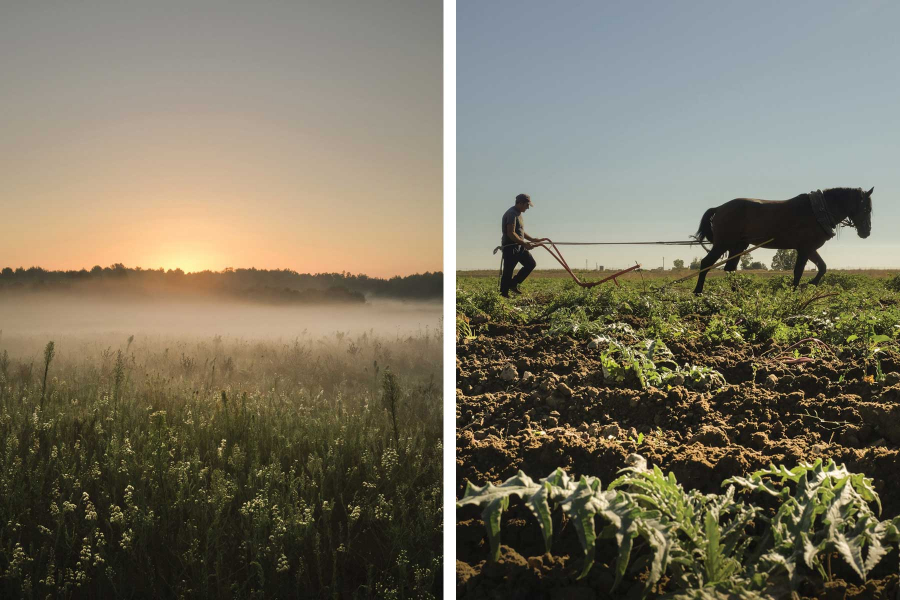
"I sensed a natural, pure quality in human relationships. Especially during the pandemic, social distancing, and the technological boom, the simplest acts of humanity were incredibly precious," Moricci shared. "Many people were willing to help me, talk to me, offer me a drink or coffee, a ride, give me kind words and encouragement, or ask for my phone number to call me just to make sure: I'm okay."
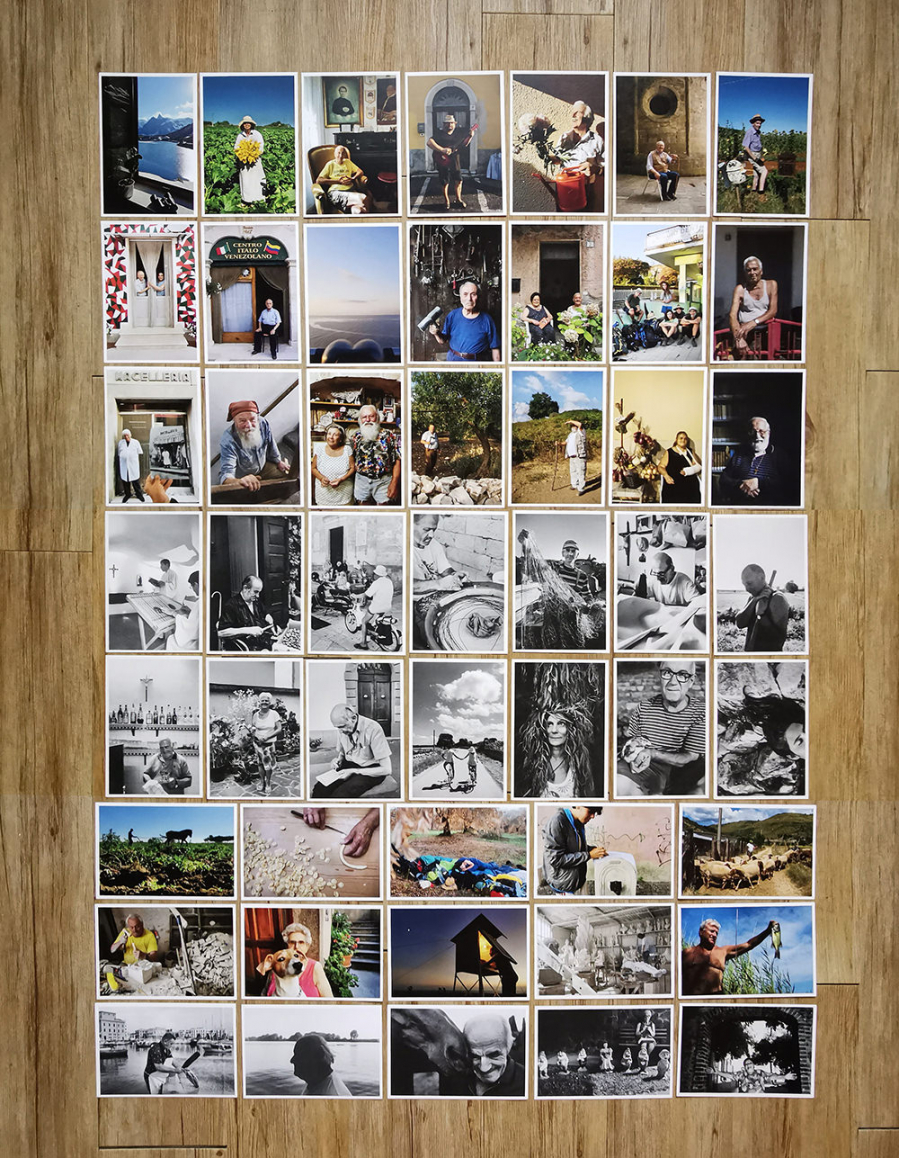
Regarding accommodation, Moricci made the most of her “pilgrimage passport,” a personal document that allowed access to rest stops along the way, including monasteries and guesthouses. “In late June and July, there were plenty of rooms available, and the occupancy was low, so it was very safe,” she said. “I had the opportunity to sleep in some of the largest churches in the centers of cities like Lecce, Pietrasanta, and Brindisi.”
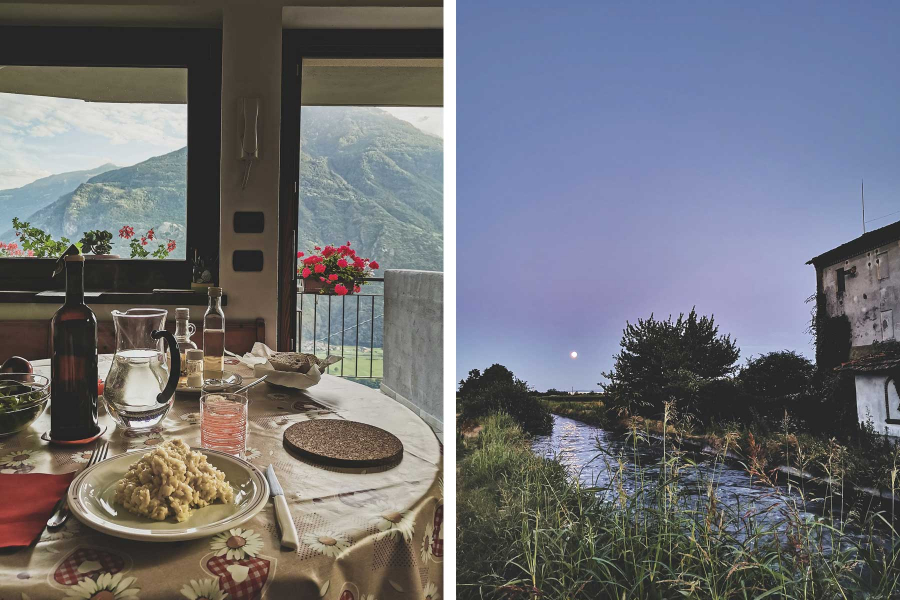
Lessons about human values
Of course, Moricci's journey wasn't without its challenges: a storm in the Valle d'Aosta mountains, stray dog barking in the countryside between Campania and Apulia, getting lost in an uninhabited cornfield – no internet, and the vulnerability of being alone – were some of the obstacles she faced. “I learned self-control and self-discipline in difficult times,” she said. “I learned that it is the mind that holds us back – before I left, I was very anxious. I needed that first step… to dispel all my fears.”
Now that Moricci is back home, she can reflect and reminisce, largely thanks to the postcards she sent herself every two days from different towns. “This experience, during this historic pandemic, was a time for me to reconnect with my ‘medieval’ self – doing simple things like walking; meeting people, talking, listening to them; learning, admiring nature and immersing myself in it; waking up at dawn and going to sleep at dusk.”
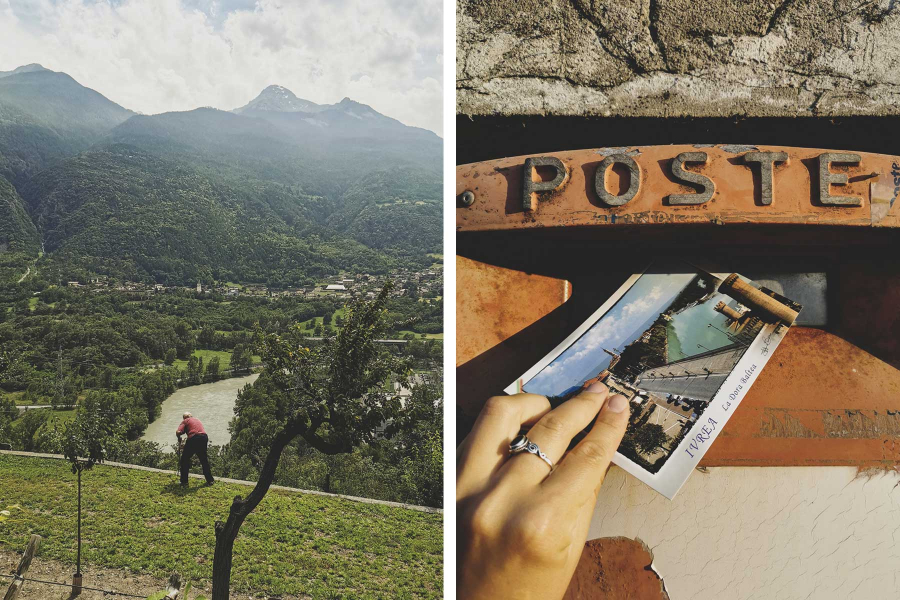
With the future of the world uncertain, Moricci has learned to embrace the present. She says, "This trip taught me how to enjoy the moment because tomorrow will be a new day with a different destination."
At a time when we are all confined to our homes, wandering around our backyards and finding joy there, Moricci somehow reminded us of the beauty of the Italian people: “I discovered that the vast hearts of the Italians are more than just explorers like myself; the experiences they want to share, the pride they take in living in this country, their yearning for freedom and their courage are truly precious.”

 VI
VI EN
EN






















